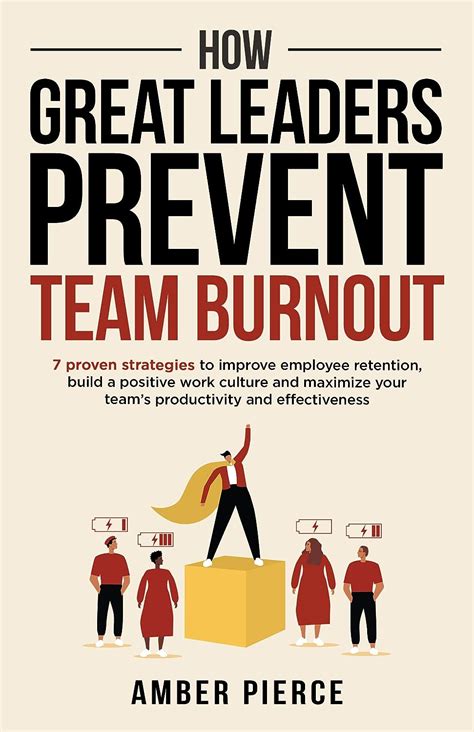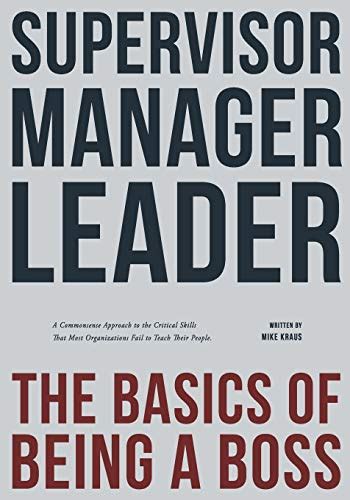Parenting is a rewarding journey, but it can also be incredibly demanding, often leading to feelings of burnout as parents juggle multiple responsibilities. Achieving a healthy work-life balance is essential not only for your well-being but also for creating a positive environment for your family. In this article, we’ll explore 10 proven strategies that can help parents avoid burnout and find that much-needed balance. From prioritizing self-care and setting boundaries to creating a support system and practicing mindfulness, these tips are designed to empower you to navigate the challenges of parenting with confidence while maintaining your own health and happiness. Discover how to better manage your time, reduce stress, and thrive both at work and home.
Explore this topic with domgiz.com in great detail.
1. Prioritize Self-Care
Self-care is the foundation of avoiding burnout and maintaining a healthy work-life balance. As a parent, it’s easy to put everyone else’s needs ahead of your own, but neglecting self-care can lead to exhaustion, stress, and ultimately, burnout. Prioritizing self-care means making time for activities that recharge and energize you, whether it’s getting regular exercise, enjoying a hobby, or simply taking a few quiet moments for yourself each day.
Start by incorporating small acts of self-care into your routine. These can be as simple as a morning walk, practicing deep breathing, or setting aside time to read. Even just a few minutes of dedicated self-care each day can help you feel more centered and capable of handling the demands of parenting.
It’s also important to recognize that self-care isn’t selfish—it’s essential. By taking care of your physical, emotional, and mental health, you’re better equipped to care for your family and handle challenges with patience and resilience. Remember, you can’t pour from an empty cup. When you prioritize self-care, you’re investing in your ability to be the best parent you can be, while also fostering a balanced and fulfill

2. Set Boundaries
Setting boundaries is a crucial strategy for avoiding burnout as a parent. Clear boundaries help you protect your time, energy, and mental health, making it easier to manage the demands of work, family, and personal life. Without boundaries, it’s easy to feel overwhelmed, constantly pulled in different directions, and unable to fully focus on any one task.
Start by defining what is most important to you and your family. This might include specific work hours, uninterrupted family time, or designated personal time for self-care. Communicate these boundaries clearly to your employer, partner, and children, ensuring that everyone understands and respects them. Remember, it’s okay to say no to additional commitments that might stretch you too thin.
Establishing boundaries also means creating a physical and mental separation between work and home life. If possible, set up a dedicated workspace at home and avoid checking work emails during family time. Encourage your family to do the same by limiting distractions like phones or tablets during meals and shared activities.
By setting and honoring these boundaries, you create a sense of structure that can reduce stress and help you stay foc

3. Delegate Tasks
Delegating tasks is an essential part of maintaining a work-life balance and preventing burnout. As a parent, you don’t have to do everything yourself. In fact, trying to handle every responsibility alone can quickly lead to exhaustion and overwhelm. Learning to delegate tasks, whether at home or at work, allows you to share the load and focus on what truly matters.
Start by identifying tasks that can be delegated. At home, this might involve asking your partner to take on specific responsibilities, encouraging your children to complete age-appropriate chores, or hiring outside help for things like cleaning or grocery shopping. At work, consider what tasks can be passed on to colleagues or outsourced, freeing up your time for more critical projects.
Effective delegation requires clear communication. Make sure that those you delegate to understand their tasks and feel empowered to complete them independently. Trust in their abilities and avoid micromanaging, as this can negate the benefits of delegation.
By sharing responsibilities, you not only reduce your own stress but also foster a sense of teamwork within your family and workplace. Delegating tasks helps create a more balanced life where everyone contributes, and you have the space to prioritize your well-being and family connections.

4. Manage Time Efficiently
Efficient time management is key to avoiding burnout and achieving a healthy work-life balance. With the numerous responsibilities that come with parenting, finding ways to make the most of your time can significantly reduce stress and help you maintain control over your schedule. Time management is about being intentional with your hours and prioritizing tasks that align with your goals and values.
Start by creating a daily or weekly schedule that includes both work and family activities. Use a planner or digital tools to organize tasks, set reminders, and block out time for essential activities, including self-care. Break larger tasks into smaller, manageable steps to avoid feeling overwhelmed.
Prioritization is crucial. Focus on high-impact tasks first, and learn to distinguish between what’s urgent and what’s important. It’s also helpful to establish routines for your family, as consistent schedules create predictability and reduce the time spent making daily decisions.
Be mindful of time-wasters, such as excessive screen time or multitasking, which can make you feel busier without actually being productive. Instead, concentrate on one task at a time, and practice saying no to commitments that don’t align with your priorities.
By managing your time efficiently, you can create more space in your day for both work and family, leading to a more balanced an
5. Flexible Work Arrangements
Flexible work arrangements can make a significant difference in maintaining a healthy work-life balance, especially for parents. Flexibility in your job allows you to better manage both professional responsibilities and family obligations, reducing the risk of burnout. Whether it’s working from home, adjusting your hours, or utilizing a hybrid schedule, these options can provide the breathing room you need to balance it all.
If your workplace offers flexibility, take advantage of it by finding a schedule that works best for you and your family. This might mean starting your day earlier to have more time in the afternoons or working in concentrated blocks of time to maximize productivity. For those in less flexible roles, consider discussing options with your employer. Many companies are increasingly open to flexible arrangements as a way to support employee well-being and productivity.
Flexibility also allows you to be present for important family moments without compromising your work performance. By integrating flexible work arrangements into your routine, you can create a lifestyle that supports both your career and your family, giving you greater control over y
6. Create a Support System
Building a strong support system is essential for avoiding burnout and achieving work-life balance as a parent. No one can do it all alone, and having a network of people you can rely on makes a big difference in managing daily challenges. Your support system might include your partner, family members, friends, and even professional help such as childcare providers or counselors.
Start by identifying who you can turn to for emotional support, practical help, or just a listening ear. Don’t hesitate to ask for help when you need it—whether it’s arranging playdates to give yourself a break or sharing your feelings with a trusted friend. Being part of a supportive community allows you to lean on others during stressful times and share the load.
Creating a reliable support system not only reduces your stress but also provides a sense of connection and shared responsibility, helping you to maintain balance and avoid burnout in your parenting journey.
7. Practice Mindfulness and Stress Reduction
Practicing mindfulness and stress reduction techniques is crucial for maintaining a healthy work-life balance and preventing burnout. Mindfulness involves staying present and fully engaging with the current moment, which can help you manage stress more effectively and improve overall well-being.
Incorporate mindfulness practices into your daily routine, such as deep breathing exercises, meditation, or yoga. These activities can help calm your mind, reduce anxiety, and enhance your ability to cope with daily challenges. Even a few minutes each day can make a significant difference in your stress levels.
Additionally, stress reduction techniques like progressive muscle relaxation or journaling can help you process emotions and alleviate tension. Set aside time for these practices regularly, and encourage your family to join you in creating a calm and supportive environment.
By making mindfuln
8. Set Realistic Goals
Setting realistic goals is essential for maintaining a balanced life and avoiding burnout. When you set achievable goals, you create a clear path forward, which can reduce stress and help you manage your time and energy more effectively. Unrealistic expectations, on the other hand, can lead to frustration and a constant feeling of being overwhelmed.
Start by evaluating your current responsibilities and identifying what is most important to you. Break down larger goals into smaller, manageable steps that are both attainable and measurable. This approach not only makes the goals feel less daunting but also provides a sense of accomplishment as you achieve each step.
Be mindful of your limits and adjust your goals as needed. It’s okay to revise your plans based on changing circumstances or new priorities. Setting realistic goals also involves recognizing your achievements and celebrating progress, no matter how small. By aligning your goals with your capabilities and resources, you create a more balanced and fulfilling approach to managing both your personal and professional life.
9. Stay Connected with Your Partner
Staying connected with your partner is vital for maintaining a balanced life and preventing burnout. In the midst of juggling work and parenting responsibilities, it’s easy to let your relationship take a backseat. However, nurturing your partnership strengthens your support system and creates a more harmonious family environment.
Make an effort to spend quality time together, even if it’s just a few minutes each day. Schedule regular date nights or simple activities that allow you to reconnect and communicate openly. Sharing your feelings, discussing challenges, and celebrating successes together can reinforce your bond and provide mutual support.
Effective communication is key. Be open about your needs and listen actively to your partner’s concerns. Addressing issues together and finding solutions as a team can help prevent misunderstandings and reduce stress.
By prioritizing your relationship and maintaining a strong connection, you not only enhance your partnership but also create a more balanced and supportive family dynamic. This, in turn, can help both you and your partner manage the demands of parenting and work with greater ease and resilience.
10. Regularly Assess and Adjust
Regularly assessing and adjusting your approach to managing work and family life is crucial for maintaining balance and avoiding burnout. Life is dynamic, and what works well one month might not be as effective the next. By periodically evaluating your strategies and making necessary adjustments, you can better respond to changing circumstances and evolving needs.
Start by setting aside time each week or month to review how well your current routines and practices are working. Reflect on what’s going well and where you might be experiencing difficulties. Are your boundaries being respected? Are you achieving your goals? Are there areas where you feel overwhelmed or unsupported?
Use this evaluation to make informed adjustments. This might involve altering your schedule, seeking additional support, or redefining your goals to better align with your current situation. Be flexible and open to change, recognizing that your needs and priorities may shift over time.
Regularly assessing and adjusting helps ensure that your strategies remain effective and that you’re continuously moving toward a more balanced and fulfilling life. By staying proactive and responsive, you can create a sustainable approach to managing the demands of parenting and work, ultimately reducing stress and enhancing your overall well-being.
By implementing these strategies—prioritizing self-care, setting boundaries, delegating tasks, managing time efficiently, exploring flexible work arrangements, creating a support system, practicing mindfulness, setting realistic goals, staying connected with your partner, and regularly assessing and adjusting your approach—you can effectively avoid burnout and achieve a healthier work-life balance. Embracing these practices helps you manage the demands of parenting while maintaining your well-being, ultimately leading to a more fulfilling and balanced life.
domgiz.com

